If you are planning to study in Germany at the undergraduate level, you will surely come across the term “TestAS” – an academic entrance exam specifically for international students. Unlike regular language tests such as TestDaF or DSH, TestAS focuses on logical thinking, analytical skills and specialized knowledge.
I. What is TestAS? Purpose & who is required to take TestAS?
Thi TestAS (Test für Ausländische Studierende) is an academic aptitude test specifically designed for international students who wish to study at a university in Germany. This is a standardized test designed by the German University Association (DAAD), helping universities determine whether candidates have the thinking ability and basic knowledge to study and adapt in the higher education environment in Germany.
1. Purpose of the TestAS exam
- Assessing academic thinking
TestAS measures the ability to analyze, reason logically, solve problems and extract information from academic texts. These are fundamental skills that help students not only keep up with lectures but also overcome the large amount of knowledge in the German university environment.
- Standardize input assessment
Since international students come from many countries with different education systems, TestAS creates a common standard for German universities to compare and evaluate candidates fairly. This reduces the dependence on inconsistent school grades, ensuring a more objective, transparent and reliable admissions process.
- College admission support
The TestAS score is used as one of the important criteria for admission to many public and private universities in Germany, especially in highly competitive fields such as Economics, Engineering, Information Technology or Social Sciences. In many cases, a high score can also help you shorten your study path and improve your chances of being admitted to the school.
- Appropriate study orientation
When registering for the TestAS, you can choose a specialized module that matches your study orientation such as Engineering, Social Sciences, Economics or Humanities. Taking the test according to a specialized field helps to accurately assess your personal abilities and strengths, thereby supporting the choice of the right major, avoiding wasting time and effort due to choosing the wrong direction.
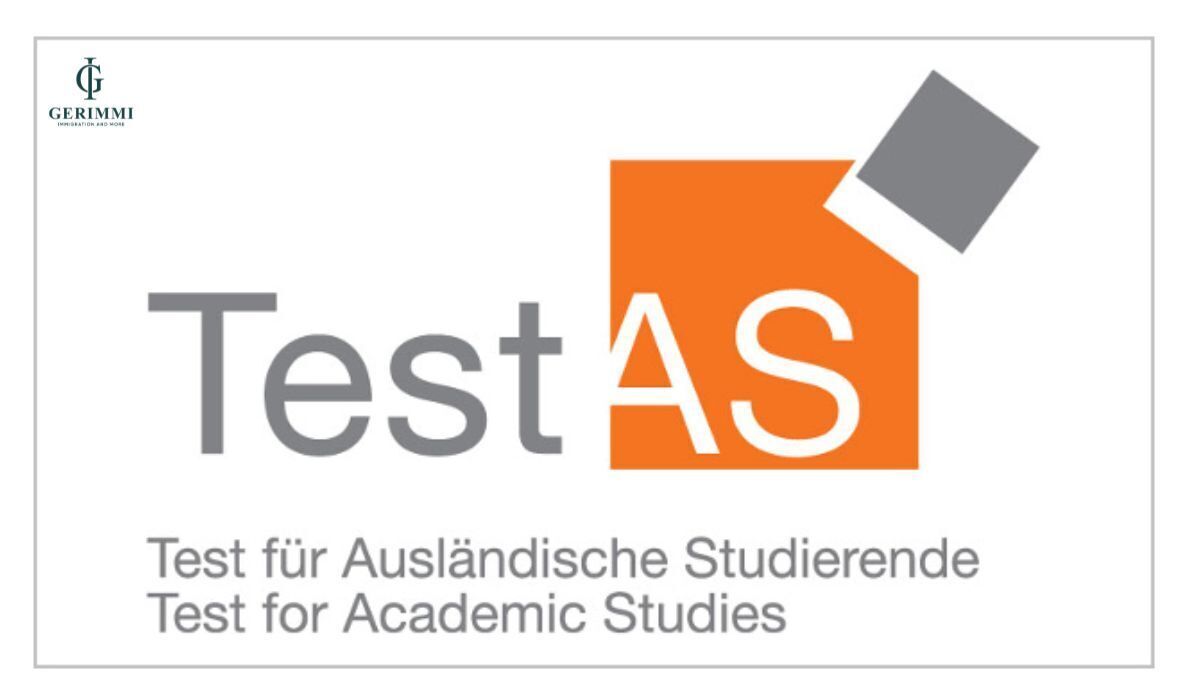
2. Who is required to take the TestAS?
Not all international students are required to TestAS, but for many groups of people, this is almost a mandatory condition if they want to study at a university in Germany. The exam becomes especially important in the following cases:
- Students who are not eligible for direct entry
If you have completed grade 12 in Vietnam or come from a country that does not have a qualification equivalent to the German Abitur, you must take a university preparatory program (Studienkolleg). Many universities require TestAS results as a prerequisite for admission to Studienkolleg. This is how the university determines whether you are qualified to study at a university in Germany in the future.
- TestAS Required Fields
Some universities in Germany, especially in the states of North Rhine-Westphalia (NRW), Hessen and many universities of applied sciences (Fachhochschule), clearly stipulate that international students are required to submit TestAS results as part of their application. In fact, many bachelor's programs will not consider you if you do not submit these results, even if you have an advanced degree from your home country.
- Want to shorten the learning path
If you want to shorten your Studienkolleg or apply for an exemption, achieving a high score on the TestAS will be a huge advantage. Some universities allow you to go straight to university if your results are good enough, especially when combined with German language certificates such as the TestDaF or DSH. This can save you a year of preparatory study and shorten your study abroad journey.
- Highly competitive profile
In "hot" fields of study such as Business Administration, Engineering, IT or Design, competition for admission is extremely fierce. If your academic records are not outstanding, a high TestAS score can help you stand out in the eyes of the admissions board. This is an effective way to compensate for weak elements in your profile and increase your chances of getting into a good school in Germany.
II. TestAS exam structure
When deciding to take the TestAS, understanding the test format is crucial to planning an effective study plan. The test consists of two main parts: a compulsory part applicable to all candidates and an optional part depending on the subject group. Each part tests essential academic skills that help international students prepare well for the learning environment.
1. Core Test - Required Part
This is the foundation test required of all TestAS candidates, regardless of which subject module they are applying for. The Core Test assesses general academic skills such as logical reasoning, understanding academic texts, working with graphs and analysing geometric relationships. The results of this section reflect the ability to think analytically and synthesise information.
2. Subject-Specific Modules
After completing the Core Test, candidates will take the specialized module test corresponding to their study orientation such as: Engineering, Economics, Social Sciences or Natural Sciences. Each module has a specific question format and content, focusing on basic knowledge and industry thinking. This is the part that demonstrates the candidate's professional capacity and is highly appreciated by universities.
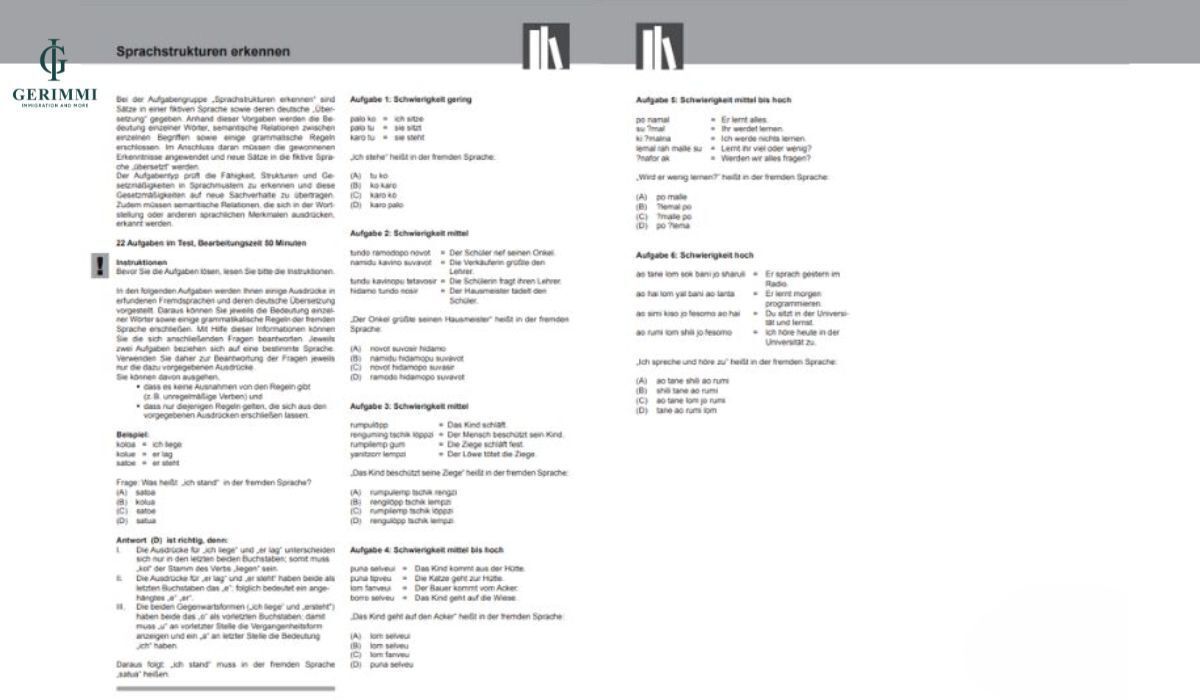
3. Exam format and time
The TestAS currently has two main formats: paper-based and digital-based. Each format has a different duration, usually lasting from 190 to 235 minutes for the entire exam. The format of the exam may vary depending on the center, but the content and scoring remain consistent with the standards of the German university association (Gütesiegel TestAS).
III. Detailed content of TestAS exam sections
1. Core Test Content
Core Testis a compulsory test for all candidates, regardless of the field of study they intend to pursue. This part is aimed atComprehensive assessment of basic academic competencies, including logical thinking, problem solving, text comprehension, and abstract thinking.
- Solving Quantitative Problems - Solving Quantitative Problems
This section tests the ability to solve basic problems involving algebra, proportions, equations, arithmetic logic, and practical problems. Candidates must use logical thinking to solve problems quickly and accurately. This type of problem does not require a calculator, but requires mental calculation and clear arithmetic reasoning.
- Understanding and Interpreting Texts - Understanding and Interpreting Texts
This section requires reading and understanding academic texts, analyzing main ideas, identifying connections between paragraphs, drawing conclusions or identifying the author's point of view. The texts can be from a variety of fields, from science to social sciences. This section helps assess the ability to learn from documents - an indispensable skill when studying abroad in Germany
- Identifying Erroneous Elements - Identifying errors in text
Candidates will be asked to identify errors in logic, grammar or structure in passages. This type of task tests language analysis and reasoning. For international candidates, it tests their ability to use German or English in a standard academic environment.
- Completing Patterns - Completing geometric logic chains
Also known as the abstract reasoning test, this section assesses the ability to recognize geometric patterns and complete logical sequences. It is a common test in international aptitude tests and reflects acumen in non-verbal recognition and reasoning.
Core Test time: About 110 minutes, slightly varies depending on the test format (CBT - computer-based test, or PBT - paper-based test).
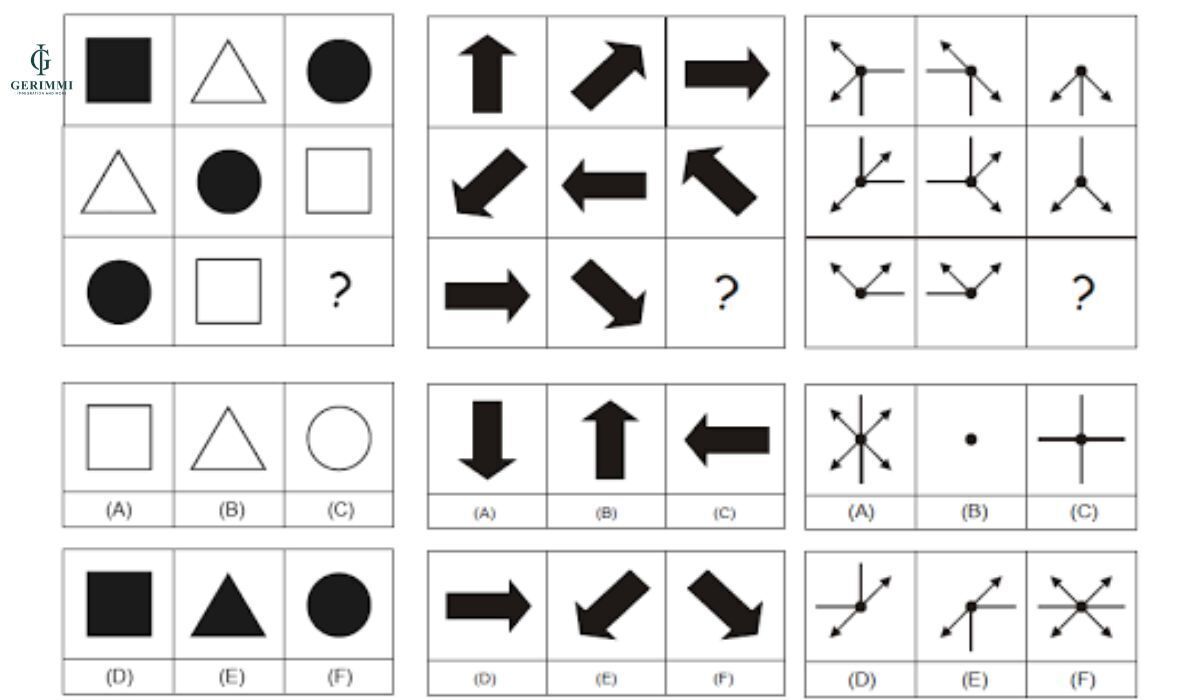
2. Content of each specialized module
In addition to the Core Test, TestAS candidates will choose one of four specialized modules depending on the field you want to study. This is the part that helps universities evaluate candidates' basic professional skills for each specific group of fields. Specialized modules include:
- Mathematics, Computer Science and Natural Sciences - Mathematics, Computer Science and Natural Sciences
For candidates planning to study in fields such as Biology, Chemistry, Environmental Science, Computer Science, etc. The content focuses on mathematical thinking, logic, scientific reasoning, solving practical problems and reading and understanding specialized charts. Requires good background knowledge and the ability to process academic data.
- Engineering - Engineering
Suitable for those who intend to study Electrical Engineering, Mechanical Engineering, Construction Engineering, Materials Engineering, etc. The exercises include mechanical problems, technical physics, geometric diagrams and mathematical applications. This is a highly complex module and requires clear technical thinking.
- Economics - Economics
This module tests basic knowledge of microeconomics, macroeconomics, market analysis, financial charts, and statistical indicators. Candidates need to understand economic concepts and know how to apply them to solve logical problems and real-life situations suitable for students planning to study Economics, Management, Finance, etc.
- Humanities, Cultural Studies and Social Sciences - Social Sciences, Cultural Studies and Social Sciences
The module focuses on the ability to analyze sociological texts, critical thinking, logical reasoning, and identify cultural and social phenomena. Suitable for candidates who want to study Communications, Sociology, Linguistics, Cultural Studies, etc.
Time to do the specialized part: About 145 minutes, including many different small parts depending on the module.
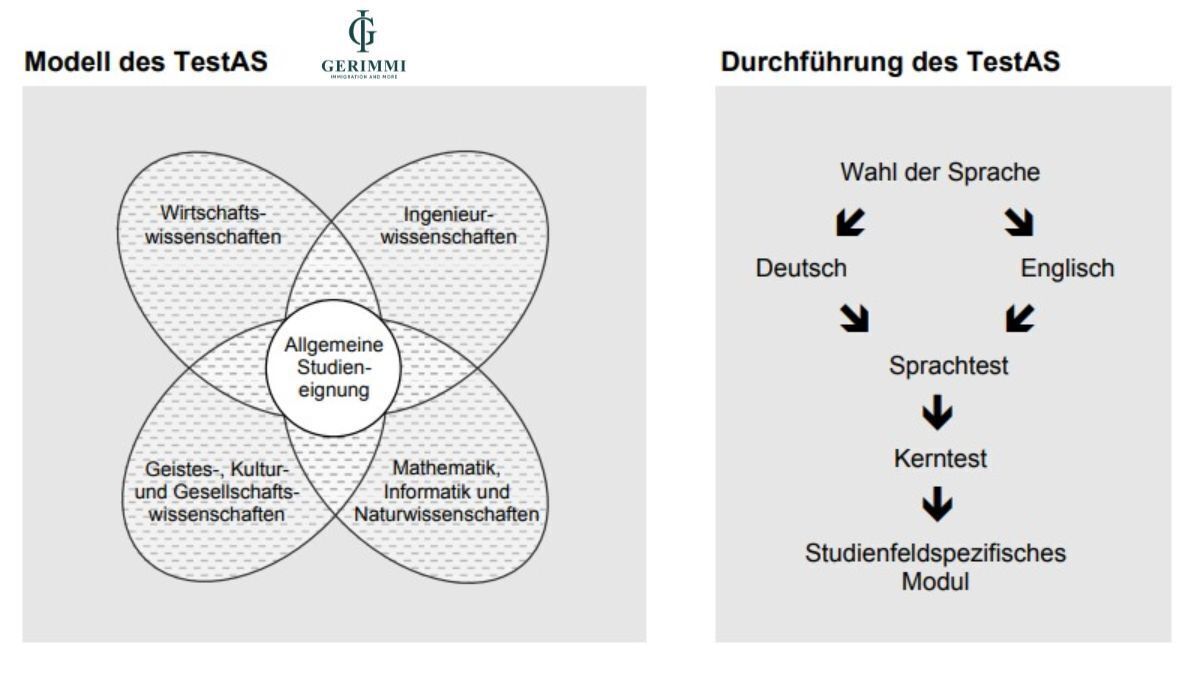
3. How to calculate points and evaluate results
TestAS results are not calculated based on the absolute number of correct answers, but are standardized and converted into a scale from 60 to 130, with 100 being the average score. All candidates will be evaluated on the same standard to ensure fairness, regardless of the different test questions from time to time.
The TestAS score consists of two separate parts:
- Core Test Score: Reflecting overall academic ability, this score is highly weighted in the application. This score is often the first point that schools consider when assessing the academic ability of international students.
- Điểm Subject-Specific Module: Assesses your knowledge and professional skills in the field you are applying for. This section is especially important if you are applying to Engineering, Economics, Natural Sciences or Social Sciences as it shows your career suitability.
How to evaluate TestAS test results:
- 60-89 points: Below average needs more practice if want to compete for scholarships or get into top schools.
- 90-109 points: Average level can be applied to many public universities in Germany.
- 110-130 points: Above average to excellent increases the chances of being admitted directly or considered for scholarships at top schools.
In addition, the TestAS test results also come with a detailed analysis of the ability of each test section, helping you know your strengths and weaknesses clearly to continue to improve your academic ability.
IV. How to register for the TestAS exam
Completion of the process Register for TestAS accurate and complete information will help you take the initiative in the location and time of the exam and avoid problems of being late or losing your exam ticket. Below are detailed step-by-step instructions:
- Create an account and update your profile
Visit the g.a.s.t website or the TestAS official website, create a personal account with a valid email. Then fill in your personal information (name, nationality, date of birth, address, intended field of study). Updating your profile completely will help you easily track your exam schedule, receive confirmation emails and timely support when there are changes.
- Choose the appropriate test format (PBT or CBT)
TestAS has two formats: PBT (paper-based test) is suitable for candidates who are used to writing by hand; CBT (computer-based test) is suitable for candidates who are proficient in computer skills. You need to consider your strengths carefully to avoid difficulties on test day. When choosing CBT, check the configuration of the test machine to avoid interruptions in the middle.
- Choose the right location and fee for the exam period
After logging in, you choose the test center near your residence (Hanoi or Ho Chi Minh City in Vietnam) and the test date that fits your study plan. Consider the time between class and exam to have effective review time. Finally, confirm the fee and check the information before submitting the test request.
- Confirm Registration - Keep Important Documents
After payment, you will receive an email confirming your registration, your personal ID number, and a detailed exam schedule. Print or save these documents to bring to the exam room. Before the exam day, check your email for any changes from the organizer, such as the exam location or what documents to bring.
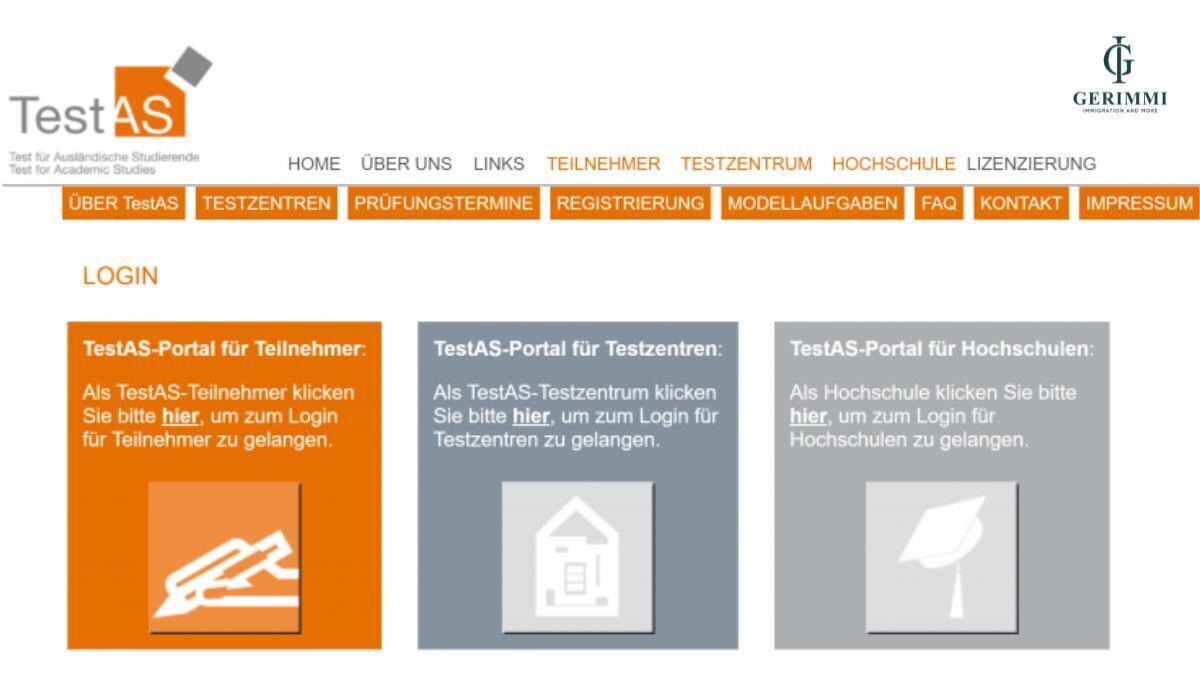
V. Latest TestAS exam fees & schedule
Understand TestAS exam costs and time help you plan well both financially and mentally before entering the important exam. Below is the latest updated detailed information:
- Standard exam fee & module surcharge
The main fee for the Core Test is around 80-100€ (equivalent to 2-2.6 million VND). If you choose to add specialized modules, the fee will be around 20-30€. The fee may change slightly between exam periods, so you should check exactly at the time of registration.
- International competition schedule by season
TestAS is held regularly in spring (April-May) and autumn (October-November). This year, many centers have added a summer session to meet the increased demand. You should follow the official announcement to register early because sessions often sell out within a few weeks of opening for booking.
- Main exam in Vietnam
Vietnam has two authorized locations to organize TestAS: Hanoi and Ho Chi Minh City. On average, there are 4-6 test sessions each year, you need to register as soon as the test schedule is open. The center also provides test instructions and regulations on spacing, test times, etc. Don't forget to follow the fanpage and website of the organizing unit for quick updates.
- Cancellation, Reschedule & Refund Policy
You can cancel or reschedule your exam, but you must do so 14 days in advance. Candidates will receive a refund of 70-80% of the exam fee, the rest is a service fee. After this period, if you do not attend, you will not be refunded. Therefore, you should plan your exam specifically and avoid registering too close to the exam date.

VI. Tips for studying and getting high scores in TestAS
Achieve good results inthi TestASIt is not only a matter of knowledge but also depends on smart study strategies. Below are effective tips based on the experiences of successful candidates:
- Practice realistic mock tests
Practice both the Core Test (110 minutes) and the specialized module (145 minutes). Do 5-10 practice tests close to the real time frame to help you get used to the pressure of time and speed. After finishing, check and time each test to better manage the time factor.
- Analyze errors carefully, save time and confusion
Each wrong question must be analyzed: why did you get it wrong? Was it because you didn't understand the question, was it because of logic errors, or was it because of time pressure? Take notes to find out your weaknesses in knowledge or skills. Then make a plan to review and make up for it: relearn the knowledge, practice reading skills, or practice reflexes when encountering difficult questions.
- Computational thinking training for CBT form
If you choose to take the computer test, you should download the TestAS simulation software and practice switching sections, marking questions, and selecting answers quickly. Mastering these operations will help you focus on the test content instead of stressing about technology.
- Intensive review according to selected major module
For example, if you chooseTechnical module, you need to practice advanced math, physical laws, and deal with technical geometry. WithEconomic module, focus on understanding charts, economic ratios, macro-micro concepts.Social Science ModuleAttention should be paid to reading comprehension and sociological thesis analysis skills. Correct review helps to significantly improve the results of the specialized section..
- Prepare mentally and physically for the exam day
In the days before the exam, get enough sleep, eat scientifically and avoid stress. Bring your identification documents, exam pen, bottle of water... Arrive at the exam room about 30 minutes early to stabilize your mind and avoid missing the exam time.

VII. Frequently Asked Questions (FAQ)
- Is it mandatory to take the TestAS exam when studying abroad in Germany?
Not absolutely required, But TestAS is a big advantage if you wish to study at a university in Germany after graduating from high school in Vietnam. Many universities in Germany use TestAS scores as admission criteria or as priority admission for international students.
- How many times should I take the TestAS?
There is no limit to the number of times you can take the TestAS. However, there should be at least 3-6 months between each test (depending on the schedule in each country). Taking the test multiple times will help you improve your score, but make sure you review thoroughly before re-registering to avoid wasting time and test fees.
- Can the TestAS be taken in English?
Yes. You can take the TestAS in English or German, depending on your language skills and the entry requirements of the university you want to study at. Note: if you take your exam in English, but the university program requires German, you will still have to submit a separate German language certificate.
- Is TestAS valid?
TestAS certificate has no expiration date. You only need to take the test once and use that result to submit to universities in Germany for many years without having to retake the test. However, if your score is not high enough or you change your major, you can completely retake the test to improve your score or choose a more suitable specialized module.
- How long does it take to get TestAS results?
Normally, you will get TestAS results in 4-6 weeks from the test date. The results are published on the personal account portal on the official website of TestAS. The detailed score sheet includes the scores of each section (Core Test + specialized modules) and the total score converted according to the TestAS standard scale.
Conclusion
TestAS is a mandatory exam for many young people who dream of studying in Germany. By understanding the test structure, having a reasonable study plan and registering at the right time, you can absolutely achieve high results and increase your chances of being admitted to top universities in Germany.

